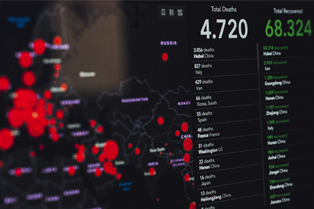Based on model predictions, early empirical evidence, and lessons from previous crises, the answer to the will COVID-19 lead to a food crisis question is probably: Yes and no. There is no single, global answer; the risk of food crisis depends on the level of economic development. So if you are rich the answer may well be no, but if you are poor, the answer is more likely to be yes.
In summary, several compounding factors make that COVID-19 is likely to cause another major food crisis among the poor. To avoid a food crisis, governments will need to implement policies and programs that target those most impacted and help address the negative impacts.
COVID-19 is disrupting economies around the world, but will it cause a food crisis? IFPRI Director General Jo Swinnen says it depends whether you are rich or poor. Jo synthesizes insights from several blog posts in this series to make the case that governments must emphasize policies and programs that target the immediate needs of their poorest citizens.
Limited government capacity to compensate

Poor people who have to travel for work are the hardest-hit by COVID-19 restrictions. Studies show large negative effects for migrant workers in several categories: Rural-urban (as in China—see Rozelle et al. (2020)), international (as in Egypt—see Breisinger et al (2020)) or rural-rural (as in India, where landless workers travel to work in seasonal jobs such as harvesting)
We practice in personal injury and commercial litigation, with an emphasis on complex contractual matters and mass tort litigation.
In summary, several compounding factors make that COVID-19 is likely to cause another major food crisis among the poor. To avoid a food crisis, governments will need to implement policies and programs that target those most impacted and help address the negative impacts.
The poor will be disproportionately impacted by COVID-19 because:
- The global economic recession will have larger effects on poor people’s income and therefore on their food security and nutrition.
- Among productive assets, COVID-19 will affect mostly labor, poor people’s principal asset.
- COVID-19 will cause more disruptions in private sector value chains in poor countries.
- COVID-19 will cause disruptions in public sector programs on food, nutrition, health, and poverty, which are more important for poor people.
- Poor countries have lower economic capacities to compensate for declining incomes.
In summary, several compounding factors make that COVID-19 is likely to cause another major food crisis among the poor. To avoid a food crisis, governments will need to implement policies and programs that target those most impacted and help address the negative impacts.




